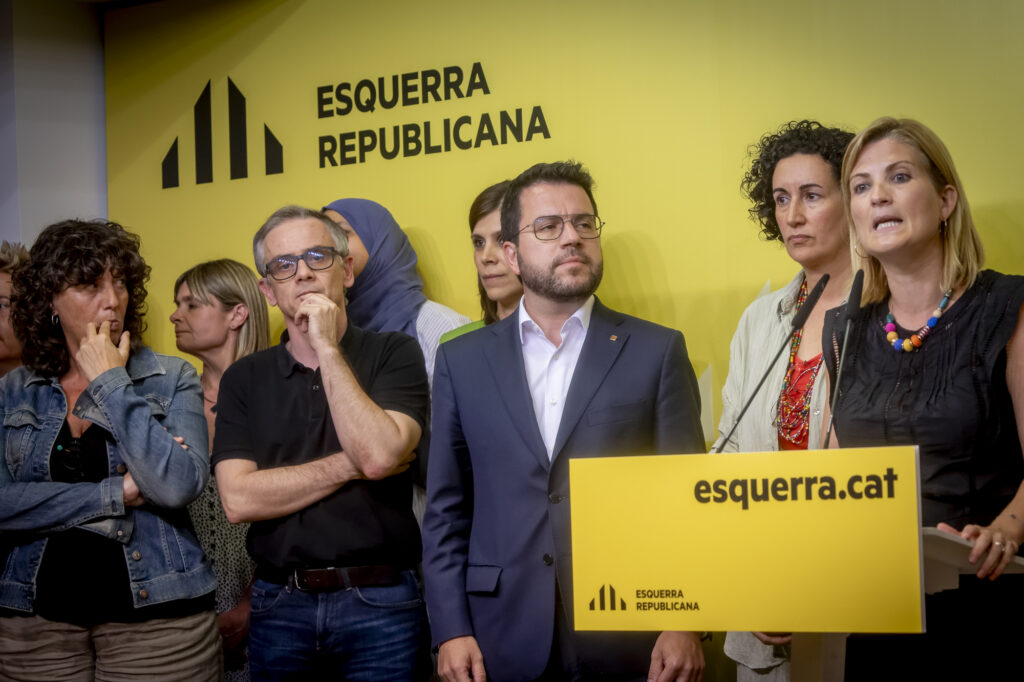Ursula von der Leyen was elected President of the European Commission with the votes of the moderate forces in the European Parliament: conservatives, socialists and liberals. She also obviously had a large support from the Greens. Therefore, the more radical groups, whether on the left or on the right of the parliamentary arc, were excluded from this understanding.
But in the recent European Parliament elections, the competition was not only between left and right political alternatives. There was also a national axis. Pro-European and anti-European parties and formations were present.
On the classical axis, the results favoured a certain swing of the parliament to the right. On the national axis, pro-European parties remained stable, but the new European Parliament includes more MEPs who oppose the idea of a Europe “more united than ever”, as the EU treaties stipulate.
In her speech as soon as she was announced as president, the German leader set out some ambitious and, at the same time, very broad programme lines. She covered challenges in the areas of defence, industrial policy, support for the primary sector and Mediterranean policies. But also issues such as access to housing and intergenerational equality.
Perhaps the long list of the Commission’s objectives responds to the need to have commissioners from all member states. Perhaps this is the result of pleasing a coalition of parties covering the entire moderate parliamentary spectrum. In any case, this could lead to two serious mistakes in the management of these next five years, which will be decisive for the fate of the continent.
The first is lack of clarity. If too many objectives are being achieved, it is difficult to prioritize well and to communicate a story that will excite the public and, at the same time, facilitate the evaluation of the administration. It would be good, once the new commission is in place, for the government’s program to focus on a few clear, articulate and evaluable objectives.
Efforts should focus on defence, migration and energy, three areas where the group does not yet have powers but where agreement is essential.
A second, more serious flaw is that since von der Leyen bases her political power on a large coalition of centrist parties, she proposes policies that are so diverse that it is not clear whether they are conservative or progressive. This risks frustrating both, while blurring the political dynamics of the left-right axis. This strategy allows extremist parties to easily criticize when policy outcomes are not followed or when difficulties arise.
If what fundamentally unites the parties supporting von der Leyen is the need for a stronger EU, then their focus should be on this: showing that what European citizens need is more Europe, rather than what the extremists are calling for, who need more Europe. The patriotsBut only from their own countries. One of these parliamentary groups declares this explicitly: it is called the Europe of sovereign states.
It would therefore be illogical for the new Commission to set affordable housing or intergenerational equality as its goals. The Commission should focus on the major challenges facing Europe that are European in scope, either because they are currently within the EU’s mandate or because, even if they were not, there are clear benefits to tackling them on a 27-point scale.
Efforts must therefore focus on defence, migration and energy, three areas where the Community does not yet have powers, but where political agreement is essential, because they are textbook cases in which public goods must be provided on a continental scale.
Another challenge facing Europe is productivity. It is growing too slowly. It is not enough to compete with the US and China, and it is essential to be able to maintain the welfare state. In any case, the policies that boost productivity are predominantly national policies, and should remain so, while complying with the principle of subsidiarity. However, there are three policies that are actually community-based and have a direct impact on productivity. They concern the internal market, tariffs, and the defence of competition (including state aid). Deepening and making the most of these classic policies should be a priority for the new Commission.
Europe is entering a political cycle. We are confident that the new College of Commissioners will get it right by choosing a strategy focused on its mission: building a more united and therefore stronger European Union.

“Freelance social media evangelist. Organizer. Certified student. Music maven.”










